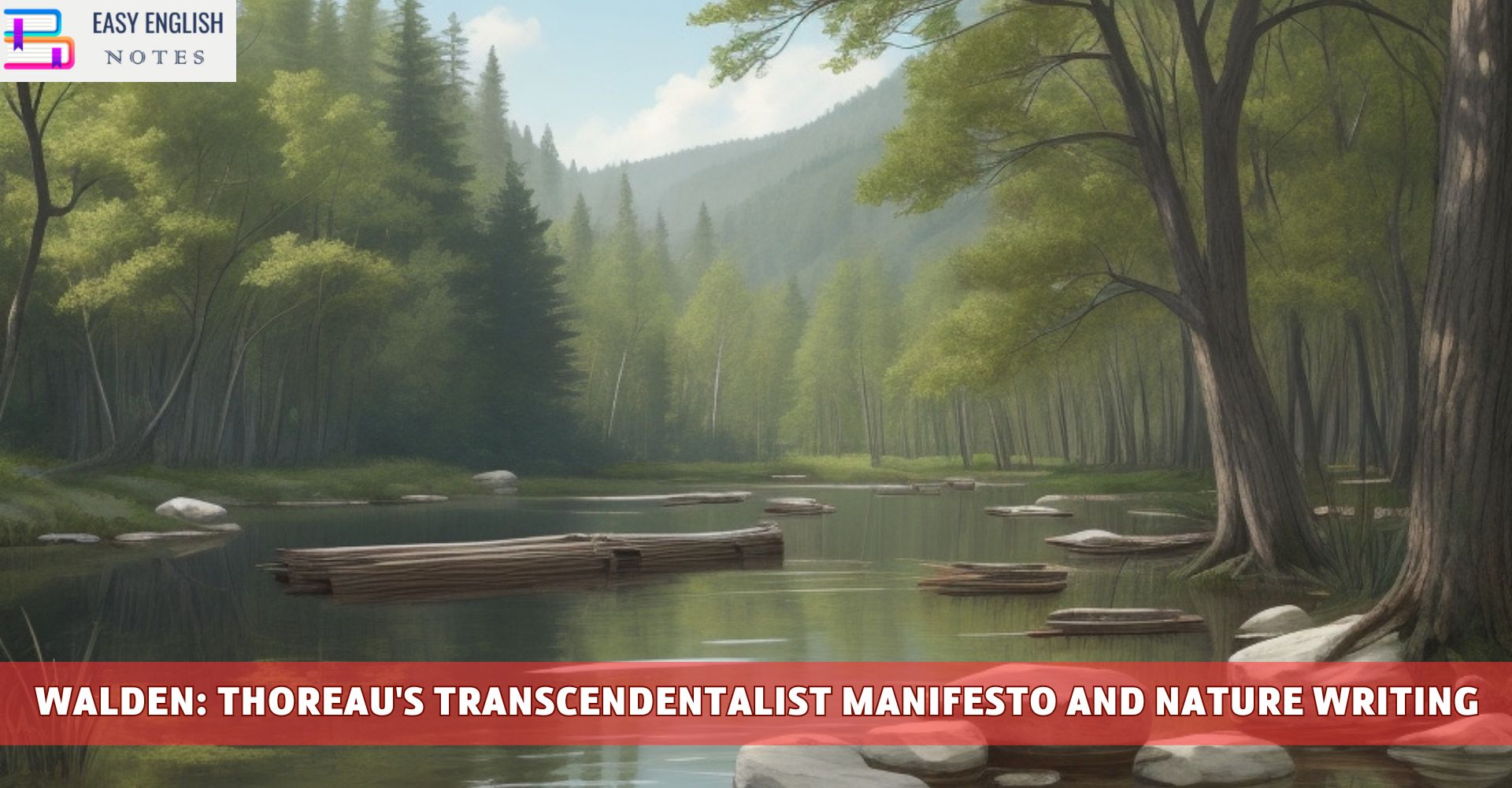“Walden,” written by Henry David Thoreau and published in 1854, is a seminal work in American literature, often considered a manifesto of transcendentalism and a classic of nature writing. The book is a reflection on simple living in natural surroundings, based on Thoreau’s own experiences over two years in a cabin he built near Walden Pond, Massachusetts.
Overview:
“Walden” is not just an account of Thoreau’s life in the woods; it is also a philosophical treatise, exploring themes of self-reliance, individualism, and the natural world. Thoreau uses his experiences to critique contemporary society and to advocate for a life of simplicity, closeness to nature, and self-sufficiency.
Themes:
- Simplicity and Self-Sufficiency: Thoreau advocates for a simple, deliberate way of living that rejects the materialism and hustle of society. He emphasizes the value of self-sufficiency and minimalism.
- Nature and Reflection: “Walden” is celebrated for its rich descriptions of nature and its argument for the importance of connecting with the natural world. Thoreau sees nature as a source of spiritual renewal and understanding.
- Transcendentalist Philosophy: As a transcendentalist, Thoreau believed in the inherent goodness of people and nature. He stressed the importance of individual intuition and conscience, and he saw a direct relationship between human beings and nature.
- Critique of Society: Thoreau uses “Walden” to critique the values of 19th-century American society, particularly its consumerism, materialism, and alienation from nature. He questions the definition of progress and success offered by society.
Style and Narrative Technique:
Thoreau’s writing in “Walden” is characterized by its poetic prose, philosophical reflections, and detailed observations of nature. The book is not a continuous narrative but a series of essays that reflect on various aspects of his life at Walden Pond.
Influence on Environmentalism:
“Walden” has been influential in environmental thought and is often cited as a foundational text in the environmental movement. Thoreau’s emphasis on conservation, his respect for nature, and his belief in living harmoniously with the environment have inspired generations of environmentalists.
Legacy and Relevance:
“Walden” remains relevant for its advocacy of simplicity, mindfulness, and sustainable living. In a world increasingly concerned with environmental issues and the impact of modern lifestyles, Thoreau’s reflections offer a poignant critique and an alternative vision of a meaningful life.
Also Read :
- Compare Hamlet with Macbeth, Othello and other Tragedies
- “The Pardoner’s Tale” is the finest tale of Chaucer
- Prologue to Canterbury Tales – (Short Ques & Ans)
- Confessional Poetry – Definition & meaning
- Line By Line Explanation Of The Poem The Eve of St. Agnes
Exploration of Individualism and Solitude:
“Walden” deeply explores the concept of individualism. Thoreau’s experiment in living alone at Walden Pond is a testament to the importance of solitude in understanding oneself and the world. He advocates for introspection and self-discovery, suggesting that true insight comes from within, rather than from society.
Connection to Transcendentalist Thought:
As a key figure in the transcendentalist movement, Thoreau’s work in “Walden” reflects many of the movement’s core beliefs, including the inherent goodness of people and nature, and the supremacy of individual conscience. The book is often seen as putting transcendentalist philosophy into practice, particularly with its focus on simple living and natural harmony.
Criticism of Materialism and Industrial Progress:
Thoreau criticizes the rampant materialism and the continuous pursuit of wealth in American society. He questions the notion of industrial progress, suggesting that it often leads to spiritual impoverishment. His reflections caution against the loss of connection with the natural world amidst the advancements of civilization.
Observations of Nature:
“Walden” is renowned for its detailed and poetic descriptions of nature and the changing seasons at Walden Pond. Thoreau’s observations reflect a deep understanding and appreciation of the natural world, serving as a form of both scientific inquiry and spiritual meditation.
Philosophical and Ethical Reflections:
Throughout the book, Thoreau delves into philosophical discussions on various aspects of life, including work, leisure, and education. He encourages readers to question societal norms and to live according to their own values and convictions.
Influence on Future Writers and Movements:
Thoreau’s work has influenced a wide range of writers and movements, from environmentalism and conservation to civil rights and passive resistance. His ideas about civil disobedience, in particular, influenced leaders like Mahatma Gandhi and Martin Luther King Jr.
Reception and Critique:
While “Walden” was not an immediate commercial success upon publication, it has grown in esteem and influence over time. Critics have analyzed Thoreau’s ideologies, his approach to solitude and society, and his contributions to environmental and philosophical thought.
Relevance in Modern Society:
In contemporary society, where environmental concerns and the search for meaning in a consumer-driven culture are increasingly prevalent, “Walden” continues to offer valuable insights. Its themes of simplicity, mindfulness, and sustainable living resonate with those seeking alternatives to a fast-paced, materialistic lifestyle.
Conclusion:
Henry David Thoreau’s “Walden” is a timeless work that combines profound philosophical insights with a deep appreciation for nature. It stands as a powerful testament to the idea of living a thoughtful, purposeful life, connected to the natural world and independent of societal conventions. The book’s exploration of themes such as individualism, self-reliance, and the critique of materialism continues to resonate, making “Walden” a classic of American literature and a seminal work in the tradition of nature writing and transcendentalist thought.
PLEASE HELP ME TO REACH 1000 SUBSCRIBER ON MY COOKING YT CHANNEL (CLICK HERE)











